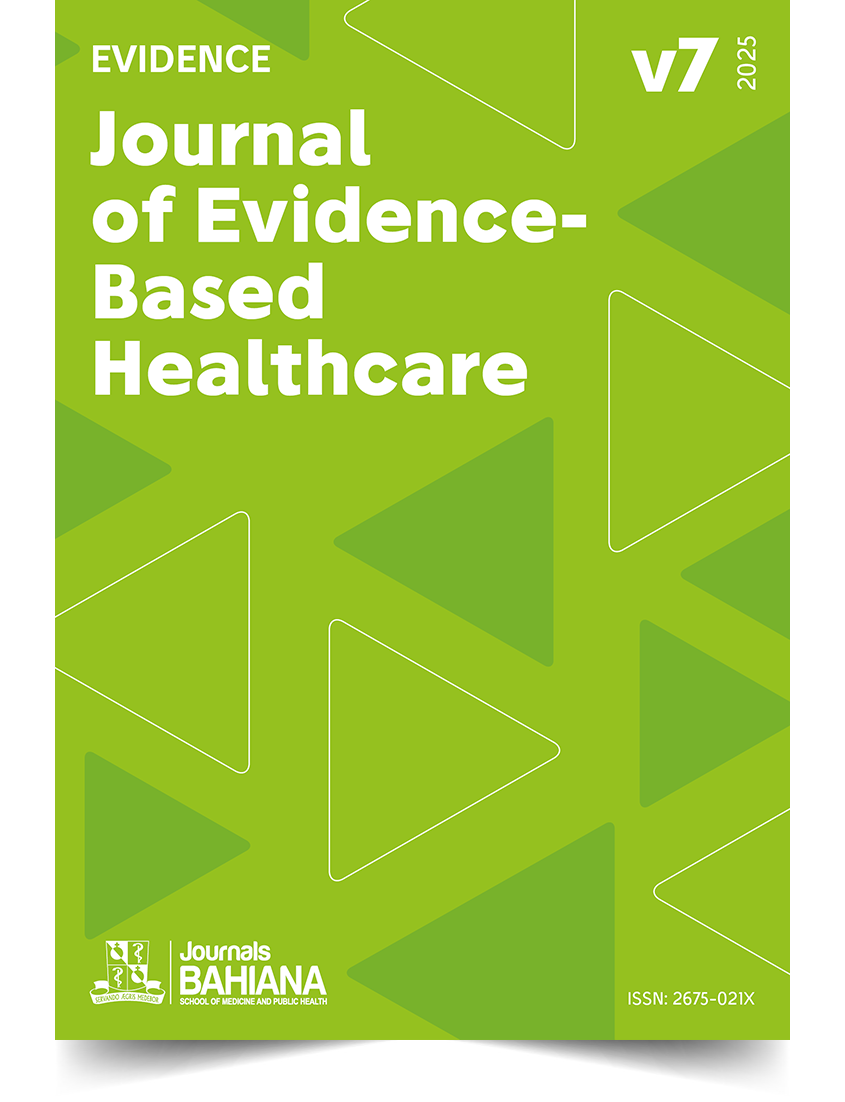The interplay of belief and skepticism in advancing science and addressing global health challenges
DOI:
https://doi.org/10.17267/2675-021Xevidence.2025.e5962Keywords:
Religion, Ethics, Medical Healthcare, Compassion, FaithAbstract
ABSTRACT | CONTEXT: Belief and skepticism, often seen as opposing forces, both play crucial roles in shaping scientific inquiry and addressing global health challenges. Belief provides ethical frameworks, fosters cooperation, and inspires compassion, while skepticism nurtures intellectual humility, critical thinking, and empirical rigor. CONCEPTUALIZATION: This article explores how these philosophical and spiritual frameworks, despite their apparent differences, mutually enrich the scientific endeavor. By integrating principles of faith, agnosticism, and organized skepticism, I examine their influence on ethics, motivation, societal development, and practical applications in medicine and global health. Through this synthesis, I highlight how these perspectives converge to support a science driven by evidence, empathy, and a commitment to the greater good.
Downloads
References
(1) Baggini J. 1. What is atheism? Atheism: A Very Short Introduction. Oxford: Oxford University Press; 2021.
(2) Baggini J. 2. The case for atheism. Atheism: A Very Short Introduction. Oxford: Oxford University Press; 2021.
(3) Archer A. Agnosticism, Inquiry, and Unanswerable Questions. Disputatio. 2019;11(53):63–88. https://doi.org/10.2478/disp-2019-0012
(4) Clausen C. Agnosticism, Religion, and Science: Some Unexamined Implications. Rocky Mountain Review of Language and Literature. 1976;30(2):73–85. https://doi.org/10.2307/1347697
(5) Weaver GR, Agle BR. Religiosity and Ethical Behavior in Organizations: A Symbolic Interactionist Perspective [Internet]. The Academy of Management Review. 2002;27(1):77–97. Available from: https://www.jstor.org/stable/4134370
(6) Müller V, Gries T. Belief Systems and Ideologies as Psychological Need Reconciliation. In: Müller V, Gries T. Ideology and the Microfoundations of Conflict: From Human Needs to Intergroup Violence. London: Oxford University Press; 2024. p. 185-216. https://doi.org/10.1093/oso/9780197670187.003.0006
(7) Gschwandtner CM. Faith, Religion, and Spirituality: A Phenomenological and Hermeneutic Contribution to Parsing the Distinctions. Religions. 2021;12(7):476. https://doi.org/10.3390/rel12070476
(8) Merton RK. The Normative Structure of Science (1942) [Internet]. Panarchy [cited 2025 Jan 8]. Available from: https://www.panarchy.org/merton/science.html
(9) Rowland W. Galileo’s Mistake: A New Look at the Epic Confrontation Between Galileo and the Church. New York: Arcade Publishing; 2003.
(10) Desmond AJ, Moore J. Darwin: The life of a tormented evolutionist. New York: W. W. Norton; 1994.
(11) Bett R. Pyrrho, his Antecedents, and his Legacy. London: Oxford University Press; 2003.
(12) Feyerabend PK. Against method: Outline of an anarchistic theory of knowledge. 3rd ed. London: Verso Books; 1993
(13) Greene C. Gregor Mendel. New York: Dial Press; 1970.
(14) Brabazon J. Albert Schweitzer: a biography [Internet]. New York: Putnam; 1975. Available from: http://archive.org/details/albertschweitzer0000brab_d9r5
(15) Jeremy Bentham. An Introduction To The Principles Of Morals And Legislation [Internet]. Oxford: Claredon Press; 1823. Available from: http://archive.org/details/in.ernet.dli.2015.201924
(16) Mill JS. Utilitarianism. London: Parker, Son, and Bourn; 1863.
(17) Kant I. Kant: Groundwork of the metaphysics of morals. Cambridge: Cambridge University Press; 2020.
(18) Koenig HG. Religion, spirituality, and medicine: how are they related and what does it mean? Mayo Clinic Proceedings. 2001;76(12):1189–91. https://doi.org/10.4065/76.12.1189
(19) Armstrong JS. Peer review for journals: Evidence on quality control, fairness, and innovation. SCI ENG ETHICS. 1997;3(1):63–84. https://doi.org/10.1007/s11948-997-0017-3
(20) Resnik DB, Smith EM. Bias and groupthink in science’s peer-review system. In: Groupthink in Science. Cham: Springer International Publishing; 2020. p. 99–113. https://doi.org/10.1007/978-3-030-36822-7_9
(21) Koenig HG. Faith and mental health: Religious resources for healing. Radnor: Templeton Foundation Press; 2005.
(22) Williams DR, Sternthal MJ. Spirituality, religion and health: evidence and research directions. Med J Aust. 2007;186(10):47-50. https://doi.org/10.5694/j.1326-5377.2007.tb01040.x
Downloads
Published
Issue
Section
License
Copyright (c) 2025 Bruno Bezerril Andrade

This work is licensed under a Creative Commons Attribution 4.0 International License.
The authors retain copyrights, transferring to the Journal of Evidence-Based Healthcare only the right of first publication. This work is licensed under a Creative Commons Attribution 4.0 International License.



